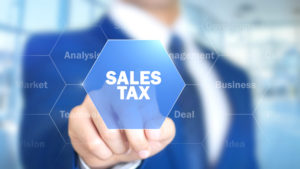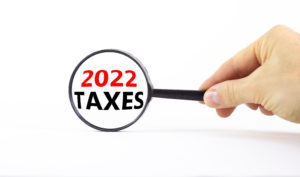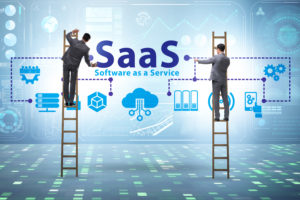Important Colorado Sales Tax Changes Retailers Need To Know Now
Sales tax legislation is constantly evolving, and while the changes can be complex and difficult to keep up with, sometimes the legislation is actually an attempt to simplify the sales tax obligations already present in the state. Colorado is one state that is working on changing their complex sales tax legislation.
After being introduced in January of 2022, Senate Bill 22-032 was signed by Colorado Gov. Jared Polis in April. This bill outlines several changes to Colorado's tax code, which we discuss in detail below.
The Complexities Of Colorado State Sales Tax
Back in February, we wrote an article about the sales tax process in Louisiana, where retailers are required to collect and remit sales tax in each parish (or county) in addition to the state level. In that article, we broke down the lawsuit that Halstead Bead Inc. filed against the state, which stated that requiring businesses based out of other states to file reports in each parish creates a "compliance nightmare."
The state of Colorado also has sales tax legislation that can be difficult to comply with, referred to as the "Home Rule" city system. This system allows certain cities in the state to set their own sales tax rates, rules and regulations. As a seller, this requires you to collect, file and remit sales tax in each city separately, plus file with the Colorado Department of Revenue for the state's portion of the tax. This is similar to the "parish-by-parish" requirements in Louisiana. In 2017, the Sales and Use Tax Simplification Task Force was implemented in Colorado to simplify the process. As a result, Colorado also implemented the Sales & Use Tax System (SUTS), a statewide portal for tax collection put in place by the Department of Revenue (DOR) in 2o2o. As of today, close to 50 of Colorado's 70-plus Home Rule cities can receive sales tax returns through SUTS. Check out the full list here.
In addition, in January 2022 Gov. Polis signed HB22-1027, which extended the small business exception to destination sourcing requirements. According to the bill, state sales tax is currently calculated based on the buyer's address when the taxable product or service is delivered to a consumer, and this is known as "destination sourcing." There is an exception that allows small retailers with less than $100,000 of retail sales to source their sales to the business's location, regardless of where a purchaser receives the tangible personal property or service. This exception, however, expired on February 1, 2022. The bill extends the repeal of the exception from February 1, 2022 until October 1, 2022.
What Changes Does Bill 22-032 Bring To The Colorado Sales Tax System?
Bill 22-032 aims to simplify local sales and use tax compliance and administration for retailers that make sales in local taxing jurisdictions where they have limited physical presence.
To streamline the sales tax compliance process, this bill asks the Department of Revenue to require sufficient information be collected from the retailer through SUTS at the time of application or renewal of their state standard retail business license. This information also needs to be available to the local taxing jurisdictions to ensure all concerns are addressed. The department is also required to consult with local jurisdictions prior to filing to help determine what information is needed. This all needs to be completed by July of 2023.
Beginning in July 2022, Bill 22-032 prohibits local jurisdictions from charging fees for general business licenses to retailers who already hold a standard license issued by the state (unless their license had been revoked in the past for noncompliance). It also requires the Department of Revenue to consult with business owners to address any "reasonable concerns" they have about taxes. Additionally, the bill prohibits the local taxing jurisdiction from requiring retailers with a license to apply separately with them for a business license, though this part of the bill will not begin until July 2023. These changes, while they sound complex, should make sales tax compliance less of a headache for retailers who do business across the state.
Do You Need Help With Your State Sales Tax Compliance?
As you can see, tax legislation is constantly evolving, and it is important to ensure you meet all of your sales tax compliance requirements state-to-state. Working with an experienced team of state tax consultants like Miles Consulting Group is a great way to do this. If you have questions about your tax liability or have any other state sales tax compliance questions, please contact us today. We're happy to clarify any multi-state tax issues you're trying to navigate.
Tax Legislation Updates From 2022 You Need To Be Aware Of
Tax legislation is constantly evolving, and it can be nearly impossible to keep track of all the nuances. That's why, for our multistate readers, we believe it's helpful to have a state tax consulting partner to help. It is crucial to stay as up to date as possible to ensure you meet all of your sales (and other state) tax obligations. In this article, we dive into some of the most relevant 2022 tax reforms we have seen so far this year.
Kansas Food Tax Reform
Back in December, we published an article about Kansas Gov. Laura Kelly's plan to introduce a bill to "Axe the Food Tax" and completely eliminate sales tax on groceries in the state. In the beginning of May, the Kansas Legislature passed a bill with strong support from both parties to gradually decrease the tax over the next three years.
The first sales tax decrease from 6.5% to 4% will go into effect in the beginning of 2023, will drop from 4% to 2% in 2024 and will be eliminated entirely by the beginning of 2025.
Some foods do not qualify and will still be taxed at the same rate. For a full list of items which remain subject to tax, check out this link, but they include prepared foods, alcoholic drinks and food sold with eating utensils.
Other states, including Illinois, Oklahoma and Tennessee, are considering proposals to temporarily suspend sales tax on groceries as well.
Income And Sales Tax Reductions
With many states experiencing budget surpluses this year, tax reform has become a popular trend. As discussed previously, one example of this is states suspending sales tax on groceries, but another has to do with income tax. Multiple states have already enacted income tax reductions this year including individual income tax reductions in Idaho, Indiana, Iowa, Utah and Mississippi. Additionally, Idaho, Iowa and Utah have enacted corporate income tax reductions and New Mexico has permanently reduced sales tax with legislation enacted on March 8th. The bill is set to reduce the GRT rate from 5.125% to 5% on July 1, 2022 and to 4.875% on July 1, 2023. To learn more about the change in New Mexico, click here. Many other states have legislation currently being considered. For more information on how income tax reform may continue to develop, visit this link.
Gas Tax Reform
With gas prices hitting an all-time high, another area of 2022 tax reform we have seen so far has been the suspension of the gas tax. Connecticut, Georgia, Maryland and New York have already enacted legislation for this summer and lawmakers in 22 states have introduced legislation to do the same. To see if gas reform legislation in your state has been vetoed, introduced or neither, check out this helpful guide.
Colorado To Simplify Sales Tax Burden For Retailers
Back in February we wrote an article about the complex sales tax state of Louisiana, where they require retailers to collect and remit sales tax in each parish (or county) in addition to the state level. Colorado is another state with similar legislation, but in April Gov. Polis signed Senate Bill 32 to ease some of this burden on their retailers and simplify the sales tax requirements in the state.
The new law is set to begin July 1, 2022, and requires each local jurisdiction to grant a free general business license to retailers who have a standard retail license issued by the state (unless the retailer's business license has been revoked in the past for noncompliance). Another part of the bill prohibits the local taxing jurisdiction from requiring a retailer with a license to apply separately to them for a business license. This begins in July of 2023. For more information on Senate Bill 32, visit this website. We plan to keep you updated on this major legislation on our blog, so stay tuned!
Do You Need Help With Your Sales Tax Compliance?
As you can see, taxes are constantly evolving and it is important to ensure you meet all of your sales tax compliance requirements. Working with an experienced team of state tax consultants like Miles Consulting Group is a great way to do this. If you have questions about your tax liability or have any other state sales tax compliance questions, please contact us today. We're happy to clarify any multi-state tax issues you're trying to navigate.
Important Distinctions Between Collecting And Remitting Sales Tax For New Business Owners
 We are often approached by newer business owners who may recently have started an e-commerce site or other business and whose sales are ramping up. Sales tax compliance is a topic that comes up quickly in these circumstances. As our company, Miles Consulting, celebrates its 20 years in business this year, it's always exciting to me to help start-ups envision their dreams.
We are often approached by newer business owners who may recently have started an e-commerce site or other business and whose sales are ramping up. Sales tax compliance is a topic that comes up quickly in these circumstances. As our company, Miles Consulting, celebrates its 20 years in business this year, it's always exciting to me to help start-ups envision their dreams.
There are many words you might not often hear if you are not in a tax-related field, but as a new business owner, it is crucial to understand their meanings to ensure sales tax compliance. Today, we are going to look at a couple of these words - "remit" and "collect," and break down how they differ when it comes to tax compliance. Keep reading to learn how to make certain you are meeting all of your business's sales tax collecting and remitting obligations.
Sales Tax Process For New Business Owners
First, let's clarify the steps of the sales tax process. When you think about it from the customer perspective, it seems fairly straightforward. The process is similar state to state as a customer - you are just charged the rate on your purchases as you bring them to the register or check out online. However, as the seller of merchandise (and certain services) there are other areas you need to navigate first. As a new business owner you may not know how sales tax requirements can vary by state. Some major differences include the taxability of the products themselves, the tax rate charged and whether exemptions are available. Another major difference is that some states allow businesses to absorb the tax for their customer, whereas others require the sales tax to be collected specifically from the customer. Close to 20 states allow this absorption, and the rest do not.
What Is The Difference Between Remitting And Collecting Sales Tax?
Collecting sales tax can be complex, especially for a new small-business owner, but this helpful guide may give you a good starting point to make sure you are checking all your boxes. We recommend starting with nexus - determining which states your company has met the threshold to require compliance with sales tax rules. Nexus can relate to either physical presence in a state (your HQ, where you have employees, where you store inventory) or where you have economic nexus. The determination used to be somewhat straightforward, especially as a brick-and-mortar store - you had nexus in a state and would collect the sales tax at your state's rate. But just about four years ago, the Supreme Court Case of South Dakota v. Wayfair (2018) changed the sales tax landscape and complicated it. Now, every state with sales tax requires companies who meet certain sales thresholds to collect and remit sales tax for them, even if the company had no physical presence in the state.
The next steps to ensure proper compliance include determining whether your product or service is taxable, registering for a sales tax permit, determining the appropriate tax rate and calculating and collecting the tax due during the checkout process, and finally remitting the tax due and filing necessary sales tax returns.
Collecting and remitting therefore refer to two unique steps business owners have to complete to ensure sales tax compliance. Collecting is the process of receiving money from your customers to cover your sales tax obligations, whereas remitting is specifically passing the money on to the state. One very key thing to keep in mind between these two steps is that as the seller and collector of the tax, you essentially become a fiduciary of the state's money for a short period of time. The seller holds on to the money until a date in time when he/she remits the funds to the state. It's crucial to remember that those collected sales tax funds must be set aside and not used for other purposes. Those funds must be available by the time the tax return is filed (and sometimes sooner), to satisfy the liability. Again - the seller is just the keeper of the funds for a short period of time. We emphasize this because we have seen cases (many of them, actually) where a seller registers, turns on the collection feature on software and begins collecting sales tax on purchases, but then doesn't complete the final steps of remitting the tax and filing the supporting tax returns. These types of mistakes in remitting the money to the state can result in substantial penalties and interest if not remedied quickly. If you have any questions, our team of multi-state tax experts is here to help!
Also note that in most states, you only need to remit tax at the state level, but a few, like Louisiana, Colorado and Alabama require you to file at a city or parish level. To complicate the matter more, each state also has its own deadline for when you need to file. If you are doing this on your own, it can be extremely time-consuming and overwhelming.
Do You Need Help With Remitting And Collecting Sales Tax For Your New Business?
As you can see, state sales tax issues are complex and vary in many areas. It is important to consistently ensure you meet all of your sales tax compliance requirements. Working with an experienced team of state tax consultants like Miles Consulting Group is a great way to do this, especially as a new business owner. If you have questions about your tax liability, or have any other state sales tax compliance questions, please contact us today. We're happy to clarify any multi-state tax issues you're trying to navigate.
Focus on Connecticut
This month, we travel to the Southern part of New England, Connecticut. The “Constitution State” is the third smallest state according to land size, but its population is actually bigger than 20 other states. The has a mix of coastal cities and rural areas dotted with small towns. Mystic is famed for its Seaport Museum filled with centuries-old ships, and the beluga whale exhibits at Mystic Aquarium. On Long Island Sound, the city of New Haven is known as the home of Yale University and its acclaimed Peabody Museum of Natural History.
Business Climate
The state’s key industries include finance, insurance and real estate. Major financial industry employers include The Hartford, Travelers, Cigna, Aetna, Mass Mutual, People’s United Financial, Bank of America, Realogy, Bridgewater Associates, GE Capital, William Raveis Real Estate and Berkshire Hathaway.
Manufacturing is a huge sector contributing to the state’s GDP. Raytheon Technologies and its subsidiaries, Pratt & Whitney and Collins Aerospace, is the state’s leading manufacturer. Lockheed Martin subsidiary, Sikorsky Aircraft operates Connecticut’s single largest manufacturing plant in Stratford, where it makes helicopters. Other major manufacturers include the Electric Boat division of General Dynamics, which makes submarines, Boehringer Ingelheim, a pharmaceuticals manufacturer and ASML, which makes precision lithography machines used to create circuitry on semiconductors and flat-screen displays.
Over half of the state’s agricultural production is the result of nursery stock production. Connecticut’s agricultural products include milk, eggs, vegetables, fruit, tobacco and shellfish.
Tax Climate
The top individual income tax rate is 6.99% and the top corporate income tax rate is 7.5%.
Apportionment: Connecticut taxpayers apportion income tax using a sales formula.
Connecticut sources services using destination-based sourcing.
Sales Tax Structure
The state sales tax rate is 6.35% and the highest combined rate is also 6.35%.
Generally, sales of digital products in Connecticut are taxable. Sales of prewritten computer programs delivered electronically are subject to sales and use tax, but with exceptions. Effective Oct. 1, 2019, sales of prewritten computer software delivered electronically are considered sales of tangible personal property and are subject to the state’s standard rate. However, if prewritten computer software delivered electronically is purchased by a business for use by such business it is taxable at the 1% rate for computer and data processing services, which is reduced from the regular state rate for sales tax. Sales of custom computer programs delivered electronically are not subject to sales and use tax. Connecticut imposes sales and use tax on sales of software as a service. How products are produced, sold and delivered is critical to determining the tax status.
Connecticut has an economic nexus law where if an out of state seller sells $100,000 and comprises 200 transactions into the state, sellers need to collect and remit sales tax on those transactions. This threshold applies to all transactions within the 12-month period ending on September 30 immediately preceding the monthly or quarterly period when liability is established. Transactions that are included in the threshold include gross receipts from tangible personal property (including digital products and SaaS) sold into the state, exempt sales and exempt services. Transactions that are excluded from the threshold include services, sales for resale and sales through a marketplace. This legislation went into effect on July 1, 2019.
Marketplace facilitators that facilitated retail sales of at least $250,000 during the prior 12-month period are required to collect and remit sales tax on behalf of their marketplace sellers. A marketplace facilitator is defined as anyone that provides a forum that lists or advertises taxable tangible personal property for sales by marketplace sellers; directly or indirectly collects receipts from the customer and remits payments to the marketplace seller; and is compensated for such services. This legislation was enacted on December 1, 2018.
Many states have annual sales tax holidays, during which certain items the state wants to promote the purchase of (like school supplies emergency preparedness supplies, or energy efficient appliances) can be purchased sales tax free. Connecticut had a sales tax holiday from the from Sunday, April 10 to Saturday, April 16, 2022. During this week, certain gas taxes and sales and use taxes on certain clothing and allocating funds for free public bus services were subject to the tax exemption. For more information on the sales tax free week, click here.
Our team at Miles Consulting Group is always available to discuss the specifics of your situation, whether in Connecticut or other U.S. States, and help you navigate the complex tax structures arising from multistate operations. Call us to help you achieve the best tax efficiencies.
Random Facts
- Connecticut and Rhode Island never ratified the 18th Amendment (Prohibition).
- Connecticut is home to the oldest U.S. newspaper still being published: The Hartford Courant, established in 1764.
- The first speed limit ever set was passed into law in Connecticut in 1901, a neck breaking limit of 12 miles per hour.
- Connecticut was the first state to have permanent license plates, starting in 1937.
- Cattle branding in the United States began in Connecticut when farmers were required by law to mark all of their pigs.
- The first lollipop-making machine opened for business in New Haven in 1908. George Smith named the treat after a popular racehorse.
- The inventor of the process of vulcanization, Charles Goodyear, was born in New Haven. Goodyear was a self taught chemist and engineer.
- Noah Webster, of Webster’s dictionary, was born on October 16, 1758, in the West Division of Hartford, CT (now West Hartford). He attended college at Yale in New Haven. His first edition of his dictionary was published in 1806.
- Eli Whitney was famed for inventing the cotton gin, was from New Haven, CT.
An Important Update On SaaS And Sales Tax: Answering Client Questions
The Software-as-a-Service (SaaS) industry has continuously grown since the first SaaS company was founded in 1999, and remains a complex and ever-changing field. It can be especially complicated when it comes to sales tax, and we constantly receive questions about it. The very nature of the product (is it a service or a software?) is a large part of the confusion, and as a result, states may define SaaS differently, which makes it hard for businesses, especially smaller ones, to keep up. SaaS is now taxed in over 20 states, but for different reasons. Other areas unique to SaaS companies in the realm of sales tax include the sourcing of revenue to the correct state, timing of the recognition of the sale and the application of the tax (versus recognition of revenue for financial/book purposes).
If you are new to the application of sales tax to SaaS, we recommend you check out our previous articles on the topic, including this one here, where we discuss in-depth what makes SaaS sales taxation so complex. In the current article, we discuss answers to specific SaaS sales tax questions and clarify how we can help companies move forward.
Q: How Has The SaaS Industry Grown This Year?
Before we dive into our SaaS and sales tax client questions, we want to share some SaaS industry updates to set the precedent for how large this industry has become. Since 2015, the SaaS industry has grown from $31.5 billion to an estimated $171.9 billion. That equates to 500% growth in only seven years. Overall, the annual growth rate is projected to surpass 17% in 2022. As you can see, this is a fast-growing field of technology, and it is important to stay ahead of your sales tax obligations.
Q: Do All States Tax The SaaS Revenue Stream?
Currently, not all states tax the SaaS revenue stream, though many do. It gets a little complicated because SaaS is considered a service in some states and not in others. To make matters more difficult, some states tax these types of services, while some do not. For example, in Arizona, SaaS is considered a taxable service. In Washington, however, SaaS is considered to be a tangible software and is subject to sales tax because of that. In Texas, SaaS is regarded as a taxable data processing service and subject to 80% taxability (vs. 100%). Similar to all other aspects of sales tax, each state, and sometimes each city, has different tax legislation for different products and services. For instance, while the states of Colorado and Illinois do not tax the SaaS revenue stream at the state level, the cities of Denver and Chicago do! (Trust us, there's some nuance there, so if you have nexus in those cities, give us a call!) Discover more about SaaS taxability by state in our previous articles here and here.
Q: What About A SaaS Company Engaged In An M&A Transaction (Or Thinking About It)?
We often see SaaS companies in the middle-market (MM) space become targets for acquisition. These companies are often not as well-represented by tax advisors (specifically in sales tax) as the purchasing company. Oftentimes, the company hasn't considered all the ramifications of sales tax on SaaS until the purchaser brings it up in the due diligence process. Unfortunately, that can often be too late, as the seller is then left with significant exposure that can affect the purchase price, holdback, etc. and make a real financial impact on the seller shareholders. Ideally, a company planning an exit strategy via acquisition should engage in internal due diligence around this matter before getting deep into the deal. Here at Miles Consulting, we can help MM companies to either shore up their state tax exposure before a deal or during the due diligence process as an advocate for the seller. Coming in earlier is ideal, as it takes some of the urgency away and allows companies a bit of time to prepare analysis, take steps toward remediation (which may also include reaching out to customers regarding self-assessment) and overall employ an offense instead of defense. We often assist with determining how much companies potentially owe in retroactive sales tax (exposure analysis), how to come forward and fix it (remediation) and a plan to move forward.
Q: What Do We Do as SaaS Company That Needs To Register In Various States And What Are The Ramifications Of Prior Year Exposure?
We are frequently introduced to clients wishing to become sales tax compliant. Ideally, they'd like to register and simply move forward with collection, remittance and compliance. Unfortunately, they often haven't considered prior liabilities created by having nexus in a state (either physical presence or economic nexus). During the registration process, states will ask when nexus was created. If that date was in the past (and it frequently is), the state will expect the delinquent returns to be filed and overdue tax be paid.
We assist with that process by determining clients' nexus creation dates, estimated amount of exposure, an overall game plan for remediation and then actually doing the "heavy lifting" of assisting with voluntary disclosure agreements (VDAs) or backfiling. There are some nuances of when you would want to do a VDA versus backfiling; this is something that we can help with as well! Once we help a client become sales tax compliant, we can also assist them with a plan to move forward with a strong sales tax compliance strategy.
Q: How Can I Implement Software To Assist With Sales Tax Compliance?
Once a SaaS client becomes sales tax compliant for retroactive liabilities, they'll need to consider how they would like to move forward in the actual collection of tax from customers, remittance of tax to the states and filing returns. They have many different options. One option is to do this internally, which can be cumbersome in a smaller organization as it takes a lot of time and effort. Clients can also choose to acquire a software solution, such as Avalara or TaxJar (Miles Consulting Group partners with these companies), to assist with collecting the correct amount. To determine how to remit tax, file returns and stay in sales tax compliance, businesses also have many options, depending on cost, convenience, technical experience, complexity, etc. They can choose a complete software solution, a complete human solution or a combination of the two. This last option is where we often come in to help - we work with software but also apply a human approach by including a level of review that cannot be achieved with software alone.
Do You Need Help With SaaS And Your State Sales Tax Compliance?
State sales tax issues are complex and constantly adapting, especially when it comes to SaaS companies. It is important to consistently ensure you meet all of your sales tax compliance requirements. Working with an experienced team of state tax consultants like Miles Consulting Group is a great way to do this. If you have questions about your tax liability related to SaaS, or have any other state sales tax compliance questions, please contact us today. We're happy to clarify any multi-state tax issues you're trying to navigate.
Focus on Missouri
This month we travel to the “Show Me” state of Missouri. The people of Missouri have earned their motto as the “Show Me” state for their very practical skepticism of the fads that sweep other parts of the country. This attitude manifests itself in the state government’s approach to business encouragement and regulation.
The state is the 21st most extensive by area and is geographically diverse. North of the Missouri River, the state is primarily composed of rolling hills of the Great Plains and south of the Missouri River, the state is dominated by forests. The Mississippi River forms the Eastern Border of the State, eventually flowing into the swampy Missouri Bootheel.
As NFTs Gain Popularity, What Are The Sales Tax Ramifications?
Non-Fungible Tokens, or NFTs, have been around since 2014, but only obtained mainstream use in 2021. According to the Economic Times, NFTs have only gained momentum since. This is due to a variety of reasons including the connection with the metaverse and celebrities jumping on the NFT bandwagon. As a result, NFT sales have soared, with some bringing in millions of dollars. With the popularity of NFTs rising, what are the sales tax ramifications? In this blog article, we explore this new and multifaceted area of taxes.
What Is An NFT?
Before we explore NFT sales tax implications, let's clarify what an NFT is. An NFT is a digital asset that represents real-world objects like music, art and videos. Just about anything can be an NFT, and this link shares a list of some of the most popular types such as collectables, trading cards, art, memes and more. NFTs are bought and sold online, usually with cryptocurrency, a decentralized digital money based on blockchain technology like Bitcoin. As we mentioned above, NFTs have gained traction in recent years, especially as a way to buy and sell digital artwork. According to Forbes, about $174 million has been spent on NFTs since November 2017. NFTs stand out among most digital creations, because they are generally either very limited, or one of a kind, and have unique identifying codes.
NFTs And Sales Tax
According to Bloomberg Tax, at least 31 states apply sales taxes to digital products and services, some of which are broad enough to likely include NFTs if they can be viewed (like artwork or trading cards) or heard (like music). No state in the United States currently implements specific NFT sales tax legislation. However, both Washington state and Puerto Rico are drafting regulations that would include NFTs in the definition of digital products when it comes to sales tax obligations. Once NFTs are added to this definition, it certainly raises questions about the sales tax ramifications. What kinds of transactions will trigger a tax collection duty? Given the anonymity embedded in many NFT transactions, how will the IRS (and in this case, states) source transactions and trace the identities of buyers and sellers? Stay caught up with our blog, as we will continue to follow this new and emerging aspect of sales tax and NFTs.
What Should You Be Aware Of As A Buyer Or Seller To Comply With All NFT Sales Tax Liabilities?
- What if I sell an NFT online directly to a purchaser?
Due to the landmark decision in South Dakota v. Wayfair (2018), every state with sales tax has introduced some level of economic nexus, meaning that a seller does not need to have physical presence in a state in order for the state to require the seller to collect its sales tax (if it meets a certain threshold of sales). This would include NFT sales if that state's digital product sales tax requirements are broad enough to include them.
- What if the buyer's state taxes digital products, but mine does not?
If the seller meets the threshold for total sales or separate sales transactions in the purchaser's state, then the seller would generally be required to collect and remit sales tax for that state. The seller should then look at the potential taxability of the NFT and determine the filing requirements. Some states may not require the registration for sales tax if all sales are non-taxable.
- How do I remit sales tax to the states that I am responsible for?
As with all multistate sellers, an NFT seller must register with the state tax agency to obtain a sales tax license or permit. This can be overwhelming, especially if you are a small seller and need to register in multiple states. Some states also allow their municipalities to administer their own local sales tax, which would require filing at the local level in those states. We recommend reaching out to qualified multi-state tax professionals, like our team at Miles Consulting, to help guide you through this process.
Do You Need Help With NFTs and Your State Sales Tax Compliance?
These state tax issues are complex and continuously evolving, especially when it comes to new technology like NFTs. It is important to consistently ensure you are meeting all of your sales tax compliance requirements. Working with an experienced team of state tax consultants like Miles Consulting Group is a great way to do this. If you have questions about your tax liability related to NFTs, or have any other state sales tax compliance questions, please contact us today. We're happy to clarify any multi-state tax issues you're trying to navigate.
Beer Brewing and Sales Tax in California
The team at Miles Consulting Group loves beer (and wine) and we especially love to help beer brewers with the challenges of reporting sales and use taxes.
Craft brewing is a highly competitive industry – California leads the U.S. with almost a thousand craft beer breweries; New York, Pennsylvania, Colorado, Washington and Michigan have about 400 craft brewers per state – that’s a lot of competition. So, with all that competition, craft brewers need to look for edges to stay in business by increasing profits and reducing operating costs. Miles Consulting Group can help craft brewers minimize their operating costs by reducing their sales and use tax burden, or “beer-den.” In this blog we are going to focus on the state with the most craft beer brewers – like the color of a crisp lager we will direct this blog to the Golden State – California.
Returns And Sales Tax: What Are Important Things To Know As A Business?
Returns are inevitable when you sell a product, whether you are a brick-and-mortar business, an online retailer or both. According to a recent survey published by the National Retail Federation and Appriss Retail, retailers saw about 16.6% of total merchandise sold eventually returned in 2021, which is up from the 10.6% of total returns in 202o. Since you are bound to see returns as an e-commerce business, it is important to be aware of the sales tax refund obligation process.
It seems simple enough, right? You need to refund your customer the sales tax that you collected from them, so just claim a credit on your next sales tax return. Unfortunately, as with just about every area of sales tax, the answer is a little more complicated. Keep reading this article to learn more about your state's requirements for refunds and sales tax.
How Many Returns Are We Talking About?
First, let's discuss the number of returns that happen in the United States. As we mentioned above, about 16.6% of total merchandise sold in 2021 was returned, but if we look at online retail exclusively, about 21% of total items were returned, according to the same survey. In terms of dollar amounts, online sales totaled about $1.050 trillion of total sales last year, with approximately $218 million returned. This can add up to a lot of sales tax. Since the average state sales tax rate is 1.45%, or $3,161,000 in this example, it can add up quickly! The amount of returns can also vary depending on the season. For example, in the 2021 holiday season, November and December, total retail sales reached $887 billion, with an expected return rate of about 18%, higher than the yearly rate. Return rates don't just vary depending on the time of year, but also on the industry. According to a 2021 study, clothing, shoes and electronics are the top three categories of most commonly returned items, with 88% of those surveyed reporting they have returned a clothing item before. But how do these return rates affect the sellers in terms of sales tax refunds?
Sales Tax And Refund Requirements
For most states, if you refund sales tax to a customer for a previous taxable period, you are technically obligated to file an amended return for that period. On that amended return is where you would claim the refunded sales tax. Then, the state can add this back as a credit toward a future sales tax payment. The main reason for this is that sales tax rates are constantly changing, sometimes by a lot. For example, if the sales tax rate increases by 1% between the time your customer bought the item and the time that they return it, you would be wrongly credited an extra 1%. This can add up, especially for large businesses. State's requirements for an amended tax return help avoid this issue.
That said, sometimes companies might still make the decision to take the credit in the period of the return. We recommend our clients look at the materiality. Since there will likely be returns almost every filing period, the former approach would lead to filing amended returns almost every period, which can result in an audit flag.
How To File After A Sales Tax Return
Now that you know what your sales tax obligations are after a customer makes a return, how do you file the return? Most states allow you to log in to your state's taxing authority and just amend the previous return online. However, some states do require a physical paper return. If you are unsure what your state's requirements are, or would like help from a state tax expert, our experienced team at Miles Consulting is happy to assist you.
Documentation Is Key
Whether you're talking about merchandise returns being recorded in the right period or other adjustments to be made on a sales tax return, it is always important to maintain proper documentation in case of an audit. This is true for all aspects of tax compliance, so we just can't stress it enough.
Do You Need Help With Your State Sales Tax Compliance?
Sales tax can be complex and varies state to state. Working with an experienced team of state tax consultants like Miles Consulting Group is a great way to ensure you meet all of your sales tax obligations. If you have questions about your tax liability or have any other state sales tax compliance questions, please contact us today. We're happy to clarify any multi-state tax issues you're trying to navigate.
Focus on Delaware
This month we travel east to the state of Delaware, the first State. It is nicknamed the first state because it was the first state to ratify the U.S. Constitution.
Delaware occupies the northeastern portion of the Delmarva Peninsula and some islands and territory within the Delaware River. It is the second-smallest and sixth least populous state, but also the sixth-most densely populated. The state is divided into three counties, having the lowest number of any state (unless one counts Louisiana and Alaska, which do not have counties, but parishes and boroughs respectively). This state can be seen as a hidden gem; being surrounded and overshadowed by its neighboring states, Pennsylvania, Maryland, and New Jersey.



























